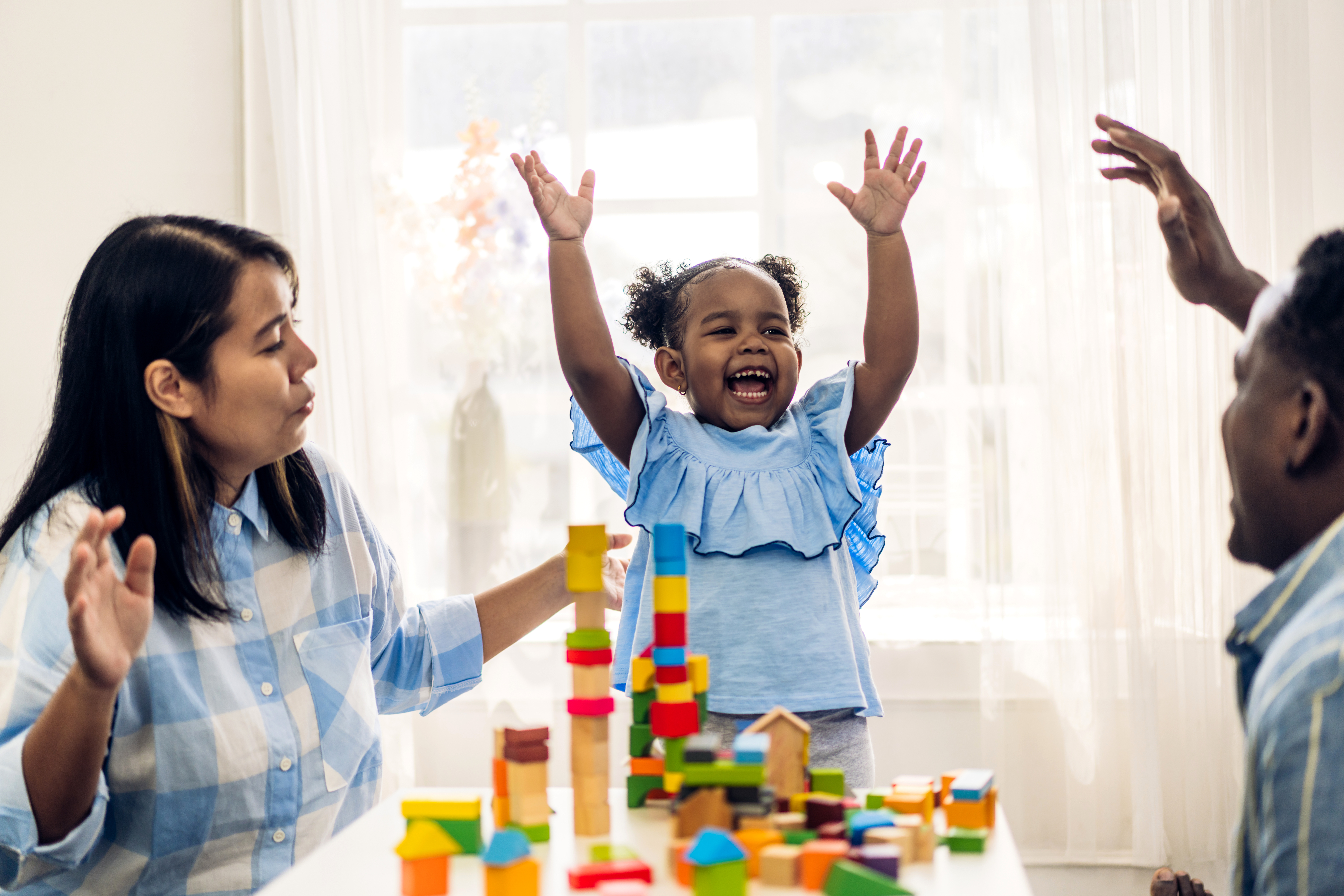
Researchers estimate that between 40% and 80% of children with neurodevelopment delays and differences have difficulty sleeping. The biggest sleep problems among these children include difficulty falling asleep and inconsistent sleep routines, especially with those who have autism. This is a challenge as there is a direct correlation between sleep and behavioral challenges, emotional regulation, skill acquisition, and mental health. Professionals in the field of Psychology and professionals in Developmental Pediatrics autism therapy suggest that creating healthier sleep habits can start with establishing a night-time sleep routine. However, sometimes that can be easier said than done! Here are some helpful tips to creating a sleep routine for your children:
Make sure all screens and devices are turned off at least two hours before bedtime:
- Taking away the bright lights, sound, and other aspects that screen time may bring is a great opportunity for children to do an activity that is more calming, this will help signal the brain that it will soon be time for the body to rest.
- Some examples of these alternate activities would include; reading the child’s favorite books, bath time, putting on relaxing music, and any other activity that the child enjoys doing to spend quality time winding down from the day and preparing the body for rest.
- It is important to look at daily tasks when creating new routines, tackling the necessities while adding new steps will help ensure they are reliable and more easily implemented. For example, a great way to spend the time before bedtime might include things like brushing teeth and putting on comfy pajamas!
- Every child is different and has different needs, some children might need a longer time to wind down from the day and some might need an activity that involves movement somewhere in this routine – in autism therapy, finding what works for you and your child will be as individualized as you make it!
The Environment:
- Making sure the room is not getting excessive outside light in, possibly a sound machine to help with blocking out excess outside sounds, scanning the environment – looking out for any toys left out, décor that may be distracting, anything that my cause a sleep disruption.
- Checking out the bedding to make sure it is comfortable and ready for your child. Making sure that no toys have been left in or around the bed and any favorite blankets are in place could help with this step. This attention to detail is particularly important for children undergoing autism therapy, as a familiar and comforting sleep environment can enhance their overall well-being.
- Implementing and using visual schedules, timers, and transition items to help signal bedtime routines may be helpful for some children as some learners are more visual than auditory. Having a visual schedule to help guide children to the next steps of the evening as well as having a set cue that it is time to wind down and go to bed can be a great step along the way.
Build Consistency:
- Even if the child is not going to bed right away, having the same schedule gives the child time to wind down and for their body to relax, which can be crucial, especially in autism therapy and ABA (Applied Behavior Analysis). This time to decompress and get ready for sleep can make a big difference if it is at or around the same time daily to help the child in understanding the routine! Establishing this routine around the same time daily can make a significant difference in their overall comfort and understanding.
- If you think that your child might benefit from having a visual schedule for their nighttime routine, or if having one builds consistency for you and your family, please check out our previous visual schedule blog post if you haven’t already!
- Creating a sleep routine is not always easy and can take some time. Don’t get discouraged! Having the best intentions to follow the nighttime plans are at times disrupted, and life can be unexpected – just remember that what is important is having a plan!
Little Spurs Autism Centers offers collaborative and compassionate ABA Therapy to children 0-21 years old. Offering both center-based and home-based care, LSAC is excited to empower families by providing them with the support they need. For more information, please email us at autism@littlespurs.com



